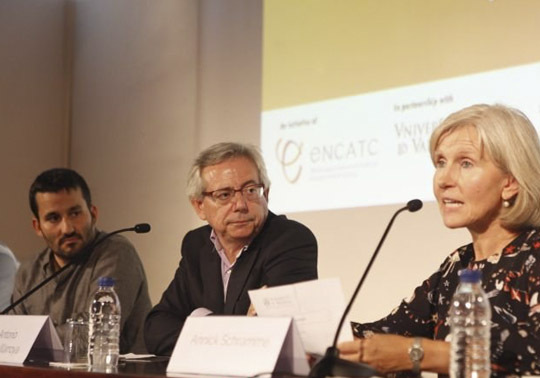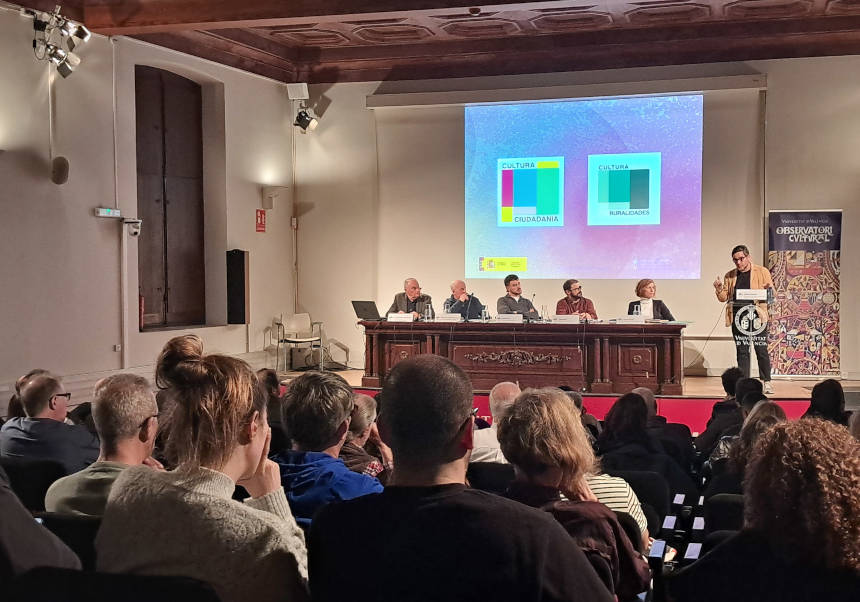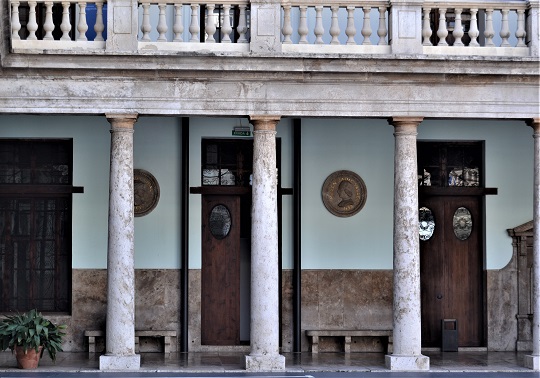Antonio Ariño: “It is necessary to reconsider the management of culture in order to improve the quality of life of people, especially the lives of the excluded”
- October 6th, 2016

The vice-principal for Culture and Equity from the Universitat de València, Antonio Ariño, has stated in his closing speech of the 24th ENCATC Conference that “cultural management is more important than ever”, but he has pointed out that “it is necessary to reconsider it in the context of risk societies and the digital era and we need to take it into account in the training of future cultural managers.”
Ariño, together with the councillor for Education, Investigation, Culture and Sports, Vicent Marzà; the president of ENCATC, Annick Schramme; the president of the Association of Educators in Artistic Management, Sherburne Laughlin; and representatives from other continents, such as the one from the Taiwanese Association of studies for cultural policies, Pao-Ning Yin, and the one from the University of Los Andes in Colombia, Jaime Ruiz Gutiérrez, have concluded the 24th Annual Congress of ENCATC which has been held in the Cultural Centre La Nau of the Universitat de València on 5, 6 and 7 October and where more than 160 experts have gathered in order talk about management and cultural policies in risk societies.
The vice-principal Antonio Ariño also wanted to state that this congress is “an excellent laboratory for social and cultural innovation” which needs to promote that “network users in the digital society have to look for the people’s quality of life and especially the quality of life of the excluded by means of aesthetic expression and critical reason.”
On his behalf, the councillor for Education, Investigation, Culture and Sports, Vicent Marzà, has claimed that the launch of strategic cultural policies has led in the Valencian territories to “an increase in the cultural consumption in the Valencian territory, far above the Spanish average; in particular, an increase in an 8.7% in cultural services and in a 11% in the consumption of books.” And, according to the councillor, this is the path which wants to follow the Valencian Government, which also shows gratitude for the celebration of a congress of such importance in the city of Valencia.
Finally, the president of ENCATC, Annick Schramme, has highlighted that “it is undeniable that collaboration and an enterprising approach are the paths that need to follow the artistic and cultural sectors if they want to stand firm in the areas of risk and uncertainty. The exchange of wealth of knowledge, innovative ideas and group resources are far more powerful than any other individual or institution. That is why I am optimistic with the future. The ENCATC members and all the ones who have accompany us can face all the challenges and solve all the problems. That way, we become the solvers of problems related to teaching, training, investigation, projects and sponsors.”
This congress has turned the Cultural Centre La Nau of the Universitat de València during these three days into the worldwide centre of debate on the effects of risk society on the cultural world. Some ideas have been exchanged on how the digital era is conditioning the transmission of knowledge, and on the convenience of building a knowledge society so as to enable people learn during all their lives.
In addition, the participants could understand successful cases, such as the idea of culture as a measure of personal well-being, or how to measure the information given by the consumers of culture in order to improve the current supply. Furthermore, the participants could enjoy the Valencian intangible and tangible cultural heritage, such as the Moma dance, the Muixeranga from Algemesí and the Centro del Carmen.
Tomorrow, the participants who want to continue with the 24th Annual Congress of ENCATC will be able to visit the historical past of the city of Sagunt. The attendees will enjoy the Roman Theatre, the castle of Sagunt and the Archaeological Museum.
Last update: 7 de october de 2016 17:00.
















